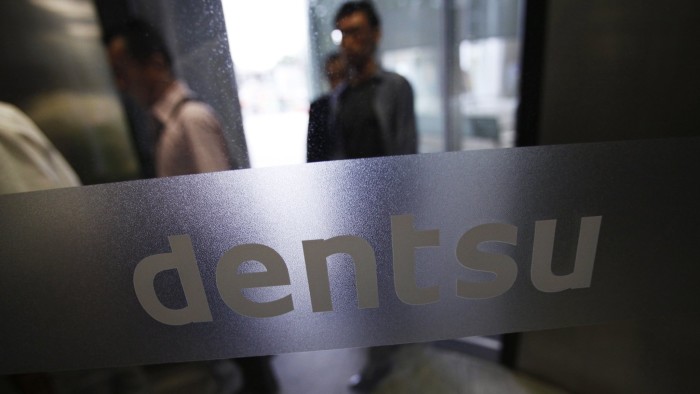Japan’s Dentsu aims to tackle overcharging revelations

Roula Khalaf, Editor of the FT, selects her favourite stories in this weekly newsletter.
Japan’s most powerful advertising agency is holding emergency talks with more than 100 clients in an effort to minimise the damage from revelations that it overcharged Toyota for digital media sales.
Following a dispute between Dentsu and Toyota that has played out behind the scenes for some months, the agency’s other clients have questioned more than 160 possible incidents of overcharging, according to advertising executives in Tokyo.
Dentsu controls about one-quarter of Japan’s annual $61bn advertising market, and numbers Sony, Honda and Kao among its household name clients.
It declined to comment on the total number of complaints it has received from clients, but said: “There were some inappropriate operations related to digital media business transactions which have already been reported to the clients concerned.” Dentsu added that it was already in consultation with those clients over any further steps required.
Toyota said on Wednesday that it had been notified by Dentsu “of irregularities in some digital media business transactions”, but it declined to provide additional details.
Although the sums involved in the overcharging scandal are comparatively small, senior advertising executives in Tokyo said the exposure of any malpractice by Dentsu had the potential to trigger a shake-up of Japan’s tightly-controlled advertising market.
Its influence in corporate Japan means it rarely attracts open criticism from either domestic media or clients unhappy with its service.
Dentsu’s extended empire of advertising agencies, brand consultancies and public relations subsidiaries includes ties with TV broadcasters and Japan’s two biggest news agencies — a network of influence that stretches deeply into corporate and public life, and which many believe gives the company too much power.
Media industry analysts have suggested much of this power arises from Dentsu’s longstanding hold over digital and television advertising slots — commodities that it buys up en masse, and then resells to clients with a mark-up that often rankles.
Although Dentsu refused to name any of the clients affected by the “inappropriate operations” — or acknowledge that Toyota was among them — people close to the two companies suggested Japan’s largest carmaker had extracted a formal apology from Dentsu.
They said Toyota had initially questioned at least five years’ worth of billing by Dentsu’s digital media division — and initial obstruction by Dentsu that prompted Toyota to conduct an internal investigation of years worth of non-digital media buying.
News of the irregularities has refocused attention on Dentsu’s role as sole gatekeeper for Japanese companies looking to strike sponsorship deals around the Tokyo 2020 Olympic Games. By controlling access to the International Olympic Committee, Dentsu effectively forces even non-clients into a relationship.
One company that had previously used a rival agency to Dentsu said it had grudgingly switched allegiances because it needed to secure the rights to sponsor the 2020 Olympics.
Beyond this stranglehold on its domestic market, Dentsu has expanded overseas in recent years, buying the UK’s Aegis in 2013 for £3.2bn and pursuing deals to boost its Chinese revenues to 10 per cent of the group total, which stood at ¥728bn ($7.2bn) in 2015
Comments